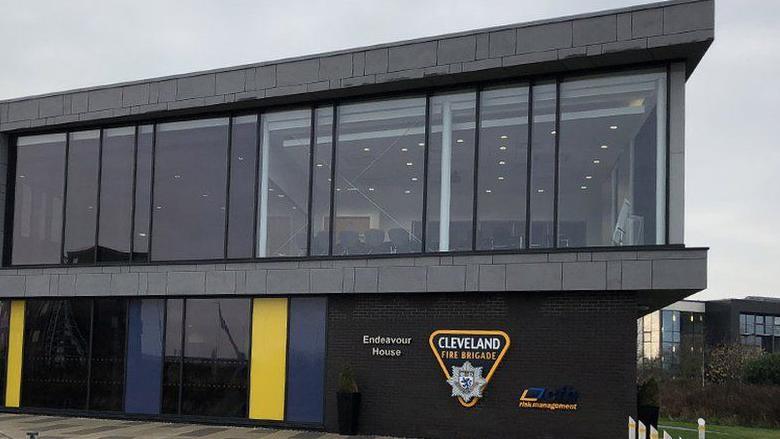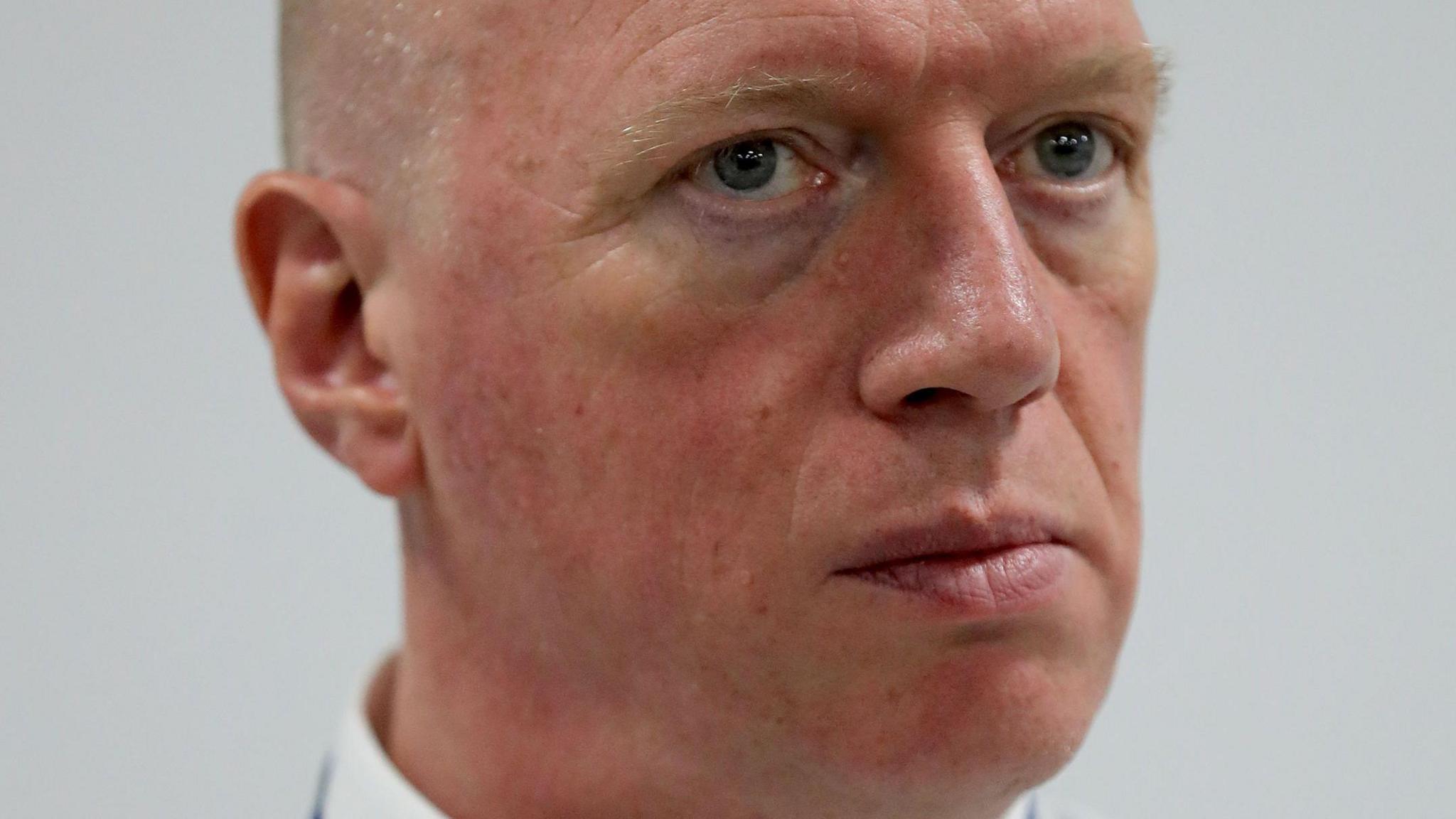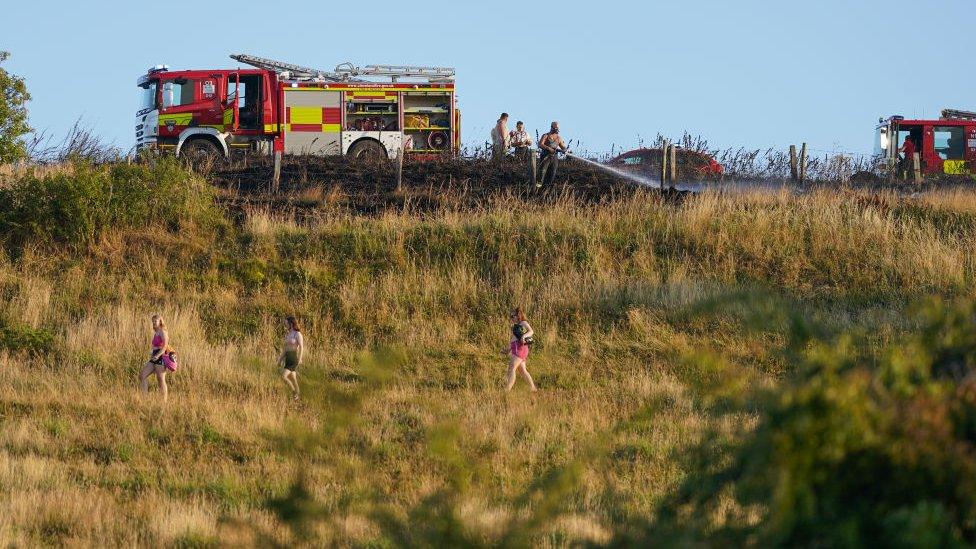Fire brigade’s sickness levels above national norm

The cost of staff sickness at Cleveland Fire Brigade has soared
- Published
Sickness rates at Cleveland Fire Brigade are significantly higher than the national average - and the cost of absences has soared.
Over a six-month period last year, staff sickness cost the brigade close to £1m, up 17% on the same period in 2022.
A spokesman said health inequalities in the area covered by the brigade may be reflected in the high sickness levels among staff.
The Fire Brigades Union (FBU) said cuts to fire services were having a "serious impact" on the health and well-being of firefighters and staff.
Mental health
Between 1 April and 30 September 2023, Cleveland Fire Brigade's sickness rate was 31% higher than the national average.
Over the same period, the cost of absences was £932,000, compared to £787,000 for the same six months the previous year.
The brigade saw a "significant increase" in absence due to mental health issues over the course of 2022/2023 and is investigating the cause.
A spokesman for the brigade said the increase was reflective of the "downward trend in the mental health indices of the local community".
He acknowledged mental health absence was a "complex area", and said the brigade was working with health partners to tackle the increased levels of sickness absence.
He added: "The brigade area suffers from significant health inequalities when compared to other areas of the country."
Austerity
The spokesman said Cleveland's increased sickness levels mirrored trends elsewhere in other fire and rescue services.
Meanwhile, the Fire Brigades Union said significant cuts to jobs and funding were contributing to a drop in the well-being of crews nationally.
FBU general secretary Matt Wrack said: "The effects of this austerity can be seen in response times, which are now worse than ever before.
"It is also having a serious impact on the mental health and well-being of firefighters and fire control staff."

Matt Wrack, general secretary of the Fire Brigades Union
He said firefighters had seen "relentless attacks" on pay, pensions and conditions.
Mr Wrack added: “Firefighters work round the clock to save lives. They deserve to be treated with respect and dignity by their employers, but too often this is not the case.
"We urgently need to restore funding to our fire and rescue service, and [take] action to address the health and well-being of staff.”
Reforms
Individual fire and rescue authorities are expected to support staff and ensure firefighters receive appropriate training and equipment.
A Home Office spokesman said its Fire Reform white paper sets out how it intends to "drive forward reforms" to improve the service for both fire staff and the public.
In response to proposals in the white paper, the government intends to task the National Joint Council - which works with employers to set firefighter pay - to review the current pay negotiation mechanism.
It will also take action to improve training, and work towards a statutory code of ethics for fire and rescue employees.
A Cleveland Fire Brigade spokesman said it takes a "proactive approach" to staff well-being and has introduced initiatives to support staff.
Follow BBC Tees on X (formerly Twitter), external, Facebook, external and Instagram, external. Send your story ideas to northeastandcumbria@bbc.co.uk.
Related topics
See also
- Published4 December 2022

- Published20 August 2023
